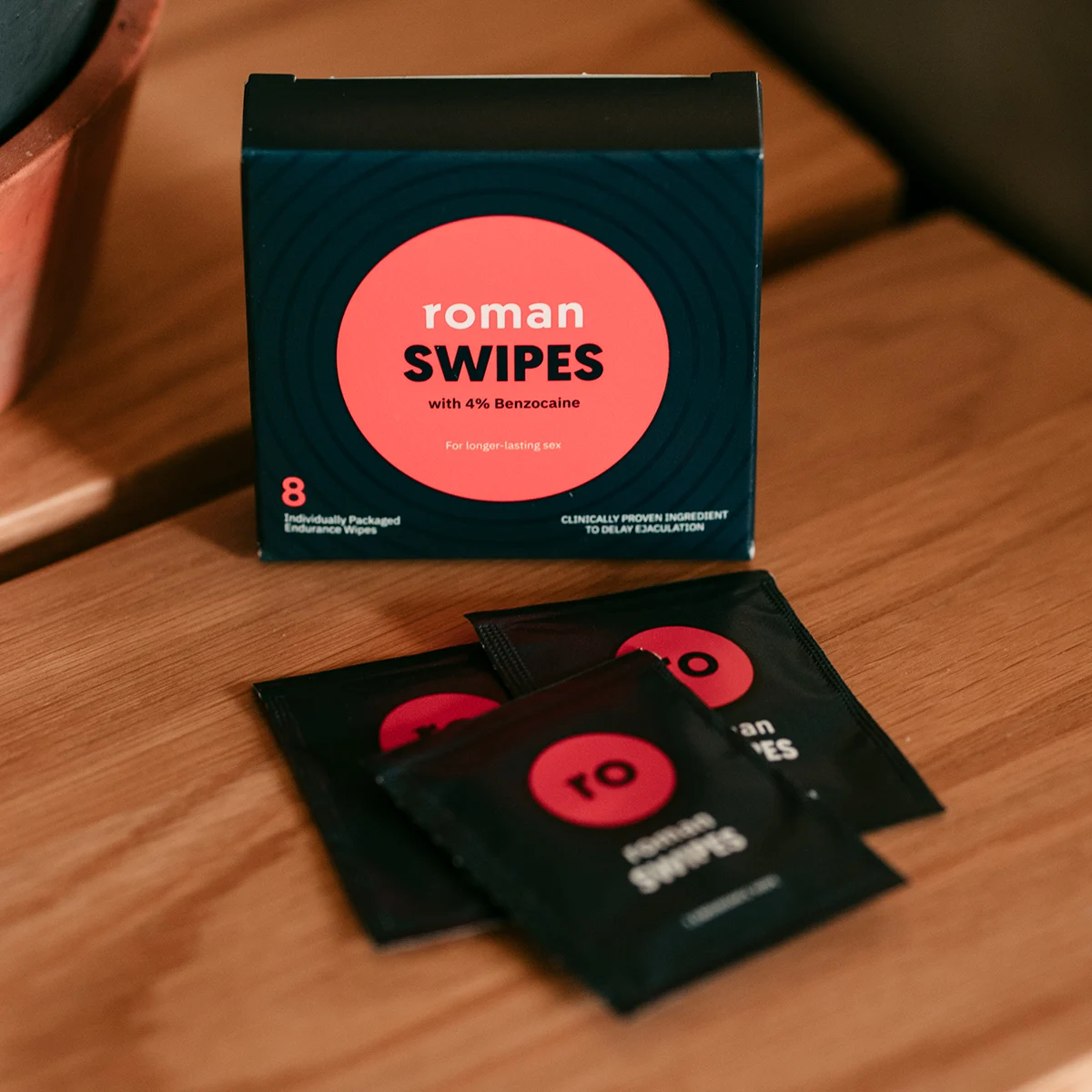Key takeaways
Unfortunately, there is little scientific evidence that honey can improve sexual performance or help you last longer in bed.
Here's what we'll cover
Key takeaways
Unfortunately, there is little scientific evidence that honey can improve sexual performance or help you last longer in bed.
Whether you’re looking to improve sexual performance, up your libido, or last longer in bed you might be wondering if there’s a natural way to do it. And since some foods are thought to have an impact in the bedroom, you might very well be wondering “does honey make you last longer?”
Sure, honey is rich in nutrients and known for its medicinal properties, but can a spoonful of sweetness enhance your sexual experience? What are honey’s benefits sexually, if any?
Ahead, we answer the question, “does honey make you last longer?” and explore the pros and cons of using honey for sex.
General health benefits of honey
Honey is a naturally sweet substance produced by bees. It’s commonly used as a natural sweetener in food and drinks and has also been used as medicine for thousands of years.
Honey is mostly made of sugar, but also contains water, protein, and a wide range of vitamins and minerals important to human health, including:
B vitamins
Calcium
Copper
Niacin
Potassium
Magnesium
Vitamin C
Zinc
While this makes it sound like honey is the ultimate superfood, keep in mind that honey only contains trace amounts of these micronutrients and not nearly enough to hit the recommended daily intake.
Importantly, honey contains what are called phenolic compounds, which are natural chemicals found in plants that are beneficial for overall health. These compounds act as antioxidants, which reduce cell damage, remove harmful substances from the body, and protect against disease.
More research is needed, but studies suggest honey could be a complementary therapy (meaning in addition to first-line treatments, such as medication) to help prevent or alleviate health problems at least in part, including heart disease, cancer, gastrointestinal problems, and respiratory infections.
Honey also has strong antibacterial and anti-inflammatory properties, which studies have found useful for tissue regeneration and wound healing. When applied topically to wounds, honey prevents bacteria from entering and keeps the area hydrated.
There are roughly 300 different types of honey. While all contain important nutrients, some like Manuka honey (which has a bitter, stronger flavor than other honey), are considered more potent, meaning they may contain more beneficial properties (and thus may offer more health benefits) compared to other types.
Honey benefits sexually
Despite the potential health benefits of honey, there’s very little research on if it will do anything for you in the bedroom. Let’s look at what the science says about using honey for sex.
May improve erectile dysfunction
There is no direct evidence that honey is a viable treatment for erectile dysfunction (ED), which is the inability to get or maintain an erection long enough for satisfactory sex.
That said, studies have found honey may boost nitric oxide levels. Nitric oxide plays an important role in achieving erections by regulating blood pressure and relaxing smooth muscle in the penis. Honey also contains flavonoids (one of those phenolic compounds we mentioned earlier), which some studies suggest could reduce the frequency of ED. This is because flavonoids may help lower blood pressure and regulate nitric oxide synthesis – two things key to achieving an erection.
May enhance testosterone production
As you may have guessed, sex hormones like testosterone play a critical role in sexual function. Though not the case for everyone, men with low testosterone may experience sexual issues like ED and delayed ejaculation.
Research is mostly limited to animal studies, but one small study shows that honey enhances testosterone production in the body, which may in turn help with sexual performance. More research is needed to determine exactly how honey impacts testosterone in humans, but the above study suggests that honey could help maintain healthy levels of testicular tissue and positively affects other hormones related to testosterone production.
May boost sex drive
Along with other foods like coffee and chocolate, honey has been suggested to be a natural aphrodisiac. Aphrodisiacs are substances that supposedly increase libido and sexual arousal. Though historically honey has been thought to be an aphrodisiac, there’s little to no scientific evidence supporting this.
So, does honey make you last longer?
The verdict is still out. So far, there is no evidence that honey (of any kind) can make you last longer in bed. If you’re looking to increase sexual stamina through a natural route, your best bet is lifestyle changes like getting regular exercise and eating a healthful diet. This can help with weight loss, disease prevention, and energy levels – all factors that affect sexual function.
For example, focusing on a low-carb eating plan like the Mediterranean diet, which is rich in vegetables, fruit, omega-3s, and whole grains (honey can also be a healthy part of a Mediterranean diet), has been found to improve sexual function in men.
If you are looking to last longer as a result of premature ejaculation, there are numbing creams, sprays, and wipes that can help. If you’re experiencing ED, the first-line treatments are FDA-approved medications like Viagra (sildenafil) and Cialis (tadalafil).
Viagra Important Safety Information: Read more about serious warnings and safety info.
Cialis Important Safety Information: Read more about serious warnings and safety info.
Are there any health risks of honey?
As a natural food, honey is safe for most people to consume. While uncommon, those with pollen allergies could be at risk for an allergic reaction; honey is made from nectar, but raw or unfiltered honey may contain trace amounts of pollen.
If you’re allergic to bees that doesn’t mean you need to avoid honey – the venom in bee stings is what causes an allergic reaction, not honey itself.
While honey possesses a lot of potential health benefits, at the end of the day it is still mostly sugar. Consuming it in moderation is best, especially for people with conditions like diabetes, where blood sugar management is crucial to overall health.
Also, beware of honey-based supplements marketed to boost sexual health. For example, a product called X Rated Honey was flagged by the FDA for containing unapproved amounts of tadalafil, an ED medication that can only be obtained through prescription. While ED medications are generally safe, they do pose serious health risks for certain people, which is why a prescription from a healthcare provider is required before use.
Bottom line
Besides being a tasty addition to sweeten up your favorite recipes, honey isn’t a magic elixir for lasting longer in bed.
While it does contain medicinal properties that could be beneficial for preventing or reducing the severity of certain conditions like heart disease, certain cancers, and respiratory infections, there’s no scientific evidence that it can boost sexual stamina.
If you’re experiencing symptoms of sexual dysfunction, your best bet is to speak to a healthcare professional who can recommend lifestyle changes and proven treatments like ED medication.
DISCLAIMER
If you have any medical questions or concerns, please talk to your healthcare provider. The articles on Health Guide are underpinned by peer-reviewed research and information drawn from medical societies and governmental agencies. However, they are not a substitute for professional medical advice, diagnosis, or treatment.
References
Aedín, C., Mary, F., & Rimm, E. (2016). Dietary flavonoid intake and incidence of erectile dysfunction. The American Journal of Clinical Nutrition, 103(2). doi:10.3945/ajcn.115.122010. Retrieved from https://www.sciencedirect.com/science/article/pii/S0002916523121575
Ahmed, S., Sulaiman, S., Baig, A., et al. (2018). Honey as a Potential Natural Antioxidant Medicine: An Insight into Its Molecular Mechanisms of Action. Oxidative Medicine and Cellular Longevity, 2018, 8367846. doi:10.1155/2018/8367846. Retrieved from https://www.ncbi.nlm.nih.gov/pmc/articles/PMC5822819/
Banihani, S. A. (2019). Mechanisms of honey on testosterone levels. Heliyon, 5(7), e02029. doi: 10.1016/j.heliyon.2019.e02029. Retrieved from https://www.ncbi.nlm.nih.gov/pmc/articles/PMC6612531/
Cianciosi, D., Forbes-Hernández, T., Afrin, S., et al. (2018). Phenolic Compounds in Honey and Their Associated Health Benefits: A Review. Molecules, 23(9), 2322. doi:10.3390/molecules23092322. Retrieved from https://www.ncbi.nlm.nih.gov/pmc/articles/PMC6225430/
Costanzo, M., Paulis, N., Montagni, M., et al. (2021). Anaphylaxis caused by artisanal honey in a child: a case report. Journal of Medical Case Reports, 15, 235. doi:10.1186/s13256-021-02823-4. Retrieved from https://jmedicalcasereports.biomedcentral.com/articles/10.1186/s13256-021-02823-4
Davies, K. P. (2015). Development and Therapeutic Applications of Nitric Oxide Releasing Materials to Treat Erectile Dysfunction. Future Science OA, 1(2015), 1. doi:10.4155/fso.15.53. Retrieved from https://www.tandfonline.com/doi/full/10.4155/fso.15.53#:~:text=Abstract,penis%20resulting%20in%20an%20erection
Francesco, S. & Tenaglia, R. L. (2017). Mediterranean diet and erectile dysfunction: a current perspective. Central European Journal of Urology, 70(2), 185-187. doi:10.5173/ceju.2017.1356. Retrieved from https://www.ncbi.nlm.nih.gov/pmc/articles/PMC5510347/
Korabi, M. & Rezghi, M. (2022). The Role of Honey in Reproductive Age Gynecological Diseases: An Overview of Clinical Trials. Traditional and Integrative Medicine, 9(1), 53-65. doi:10.18502/tim.v9i1.15089. Retrieved from https://publish.kne-publishing.com/index.php/tim/article/view/15089
Palma-Morales, M., Huertas, J., & Rodríguez-Pérez, C. (2023). A Comprehensive Review of the Effect of Honey on Human Health. Nutrients, 15(13), 3056. doi:10.3390/nu15133056. Retrieved from https://www.mdpi.com/2072-6643/15/13/3056#:~:text=Honey%20is%20a%20nutritious%2C%20healthy,its%20content%20of%20phenolic%20compounds
Samarghandian, S., Farkhondeh, T., & Samini, F. (2017). Honey and Health: A Review of Recent Clinical Research. Pharmacognosy Research, 9(2), 121–127. doi:10.4103/0974-8490.204647. Retrieved from https://pubmed.ncbi.nlm.nih.gov/28539734/
Tashkandi, H. (2021). Honey in wound healing: An updated review. Open Life Sciences, 16(1), 1091–1100. doi:10.1515/biol-2021-0084. Retrieved from https://www.ncbi.nlm.nih.gov/pmc/articles/PMC8496555/
Tsujimura, A. (2013). The Relationship between Testosterone Deficiency and Men's Health. The World Journal of Men’s Health, 31(2), 126-135. doi:0.5534/wjmh.2013.31.2.126. Retrieved from https://www.ncbi.nlm.nih.gov/pmc/articles/PMC3770847/#:~:text=Sexual%20dysfunction%2C%20in%20particular%20hypoactive,men%20with%20low%20testosterone%20level
U.S. Food and Drug Administration (FDA). (2022). Public Notification: X Rated Honey For Men contains hidden drug ingredient. Retrieved from https://www.fda.gov/drugs/medication-health-fraud/public-notification-x-rated-honey-men-contains-hidden-drug-ingredient
Wang, S., Qiu, Y., & Zhu, F. (2024). An updated review of functional ingredients of Manuka honey and their value-added innovations. Food Chemistry, 440(15). doi:0.1016/j.foodchem.2023.138060. Retrieved from https://www.sciencedirect.com/science/article/pii/S030881462302678X
Zaid, S., Ruslee, S. S., & Mokhtar, M. H. (2021). Protective Roles of Honey in Reproductive Health: A Review. Molecules, 26(11), 3322. doi:0.3390/molecules26113322. Retrieved from https://www.ncbi.nlm.nih.gov/pmc/articles/PMC8197897/











